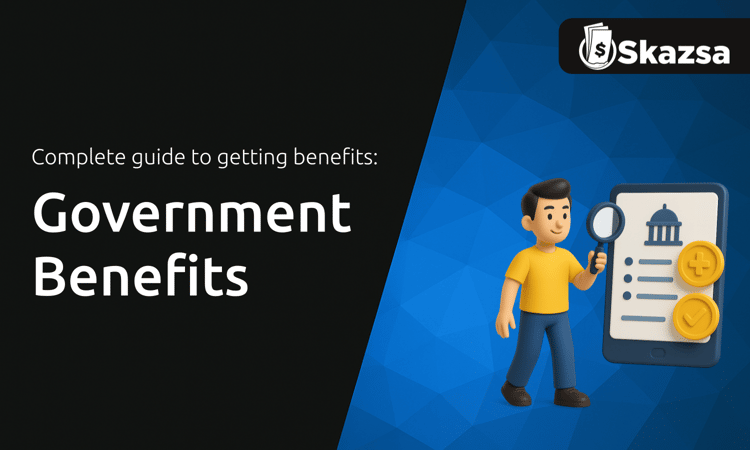Navigating the intricate landscape of government benefits can be a daunting journey. However, these benefits serve as essential supports that millions rely on daily.
From helping senior citizens and disabled individuals to offering crucial assistance to low-income families, government benefits play a pivotal role in enhancing livelihoods and ensuring economic stability.
In essence, government benefits are designed to provide financial stability, health coverage, and educational assistance, among others. Understanding these offerings and knowing how to maximize their utility could significantly impact your quality of life.
- Income Replacement Benefits.
- Income Supplement Benefits.
- Eligibility and Application Processes.
- Pros and Cons.
Lets delve deeper into understanding what government benefits are, who they are intended for, and how they can be accessed.
Understanding the Comprehensive Benefits of Government Assistance
Government benefits are designed to offer various forms of assistance to eligible individuals.
They are categorized primarily into income replacement benefits and income supplement benefits, each serving distinct purposes.
-
Income Replacement Benefits These benefits provide financial assistance in the form of old-age pensions, disability pensions, survivor benefits, paid leave, and unemployment compensation, effectively replacing lost income due to age, disability, or unemployment.
-
Income Supplement Benefits These are additional benefits meant to supplement current income, providing resources for healthcare, child care, education, housing, and more, aimed at alleviating poverty and supporting those with low income.
-
Financial Stability and Health Coverage Government benefits ensure individuals and families have access to essential health services and financial assistance, contributing towards overall societal health and economic balance.
-
Educational and Housing Support Through in-kind and monetary support, government benefits enable access to affordable housing and educational opportunities, especially for families and individuals lacking resources.
Who Qualifies for Government Benefits?
Eligibility for government benefits often depends on various criteria set forth by each program.
Understanding who qualifies for these benefits is crucial for accessing the support you need.
- Low-income individuals and families.
- Disabled persons.
- Senior citizens.
- Veterans.
- Unemployed individuals.
While each program may have specific eligibility requirements, these groups are typically prioritized to ensure that the most vulnerable receive assistance.
The Pros and Cons of Government Benefits
Government benefits offer numerous advantages, from financial security to access to essential services. However, like any program, they come with challenges and areas for improvement.
Pros
-
Financial Security and Poverty Reduction
These benefits are integral in supporting vulnerable groups, reducing poverty, and providing a safety net for individuals facing financial hardships.
-
Access to Essential Services
Programs offer crucial access to healthcare, housing, education, and other essential needs, which may otherwise be inaccessible to low-income individuals.
Cons
-
Complex Eligibility and Application Processes
The sometimes overwhelming and intricate processes can deter potential beneficiaries from applying for or securing necessary assistance.
-
Potential Stigma
There can be social judgment associated with receiving government aid, causing some individuals to hesitate in seeking help.
Why Skazsa Recommends Understanding Government Benefits
Recognizing the value of government benefits is essential not only for personal financial planning but also for navigating broader economic challenges.
At Skazsa, we believe that informed financial decisions are a cornerstone of economic independence.
Government benefits are a vital resource for many, providing a lifeline in times of need.
By understanding these programs, individuals can effectively plan for their future while ensuring their immediate needs are met.
- They provide financial security and support to communities in need.
- Understanding eligibility and application processes can ensure timely and adequate assistance.
- Proper utilization of benefits contributes to individual and family stability, crucially supported by Skazsa's commitment to financial literacy.
Frequently Asked Questions about Government Benefits
What are government benefits?
Government benefits are assistance programs offering cash or in-kind support, aimed at low-income, disabled, and other eligible individuals to support their basic needs.
Who qualifies?
Qualification depends on program-specific criteria, including income limits, age, disability status, veteran status, or employment history.
What types of benefits exist?
There are income replacements like pensions and unemployment benefits, and supplements like healthcare, housing, and food assistance.
Can one receive multiple benefits?
Yes, its possible to receive multiple benefits if you meet the eligibility criteria for each, such as receiving both SSI and SSDI.
How to apply?
Applications are generally processed through government portals, state social services, or specific agencies such as the SSA for Social Security benefits.
Final Considerations
Government benefits are a pivotal component of social welfare in the United States.
They offer critical support across various layers of society, ensuring that those in need have the means to maintain a basic standard of living.
Understanding and navigating these benefits can make a substantial difference in the lives of many.
At Skazsa, we encourage informed financial decisions and provide resources to help you understand and access these vital programs.














